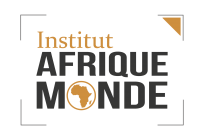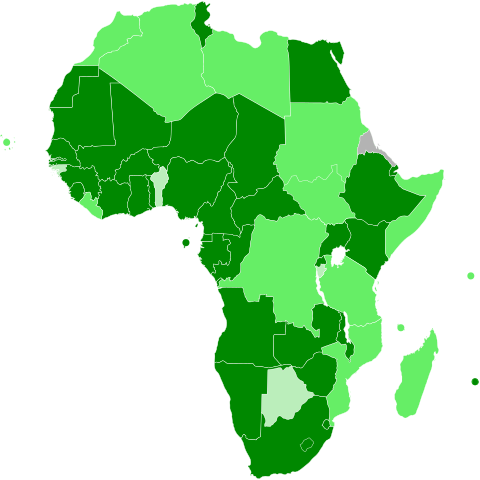Developments on the African continent: debates, reflections and sharing
The African Union calls for governance based on respect for public and private freedoms where priority must be given. The African Union calls for governance based on respect for public and private freedoms, where the daily priority and effectiveness of institutions are dedicated to peace, health, education and training, democracy, scientific and technological research, local management, agricultural policy, justice, art and culture, alert, mediation and resolution of conflicts, political clashes, the fight against crime and terrorism, respect for public order and the law, ethics in public action.
I A continent and its governance in the face of the challenges of democracy
Of all the continent’s challenges and urgent issues, its governance has very often been indexed as the weak link in development mechanisms and other processes. Political, economic, social, cultural and spiritual governance… at the heart of the concerns of the Africa World Institute, which intends to invest itself in it by taking into account the theme in its broadest sense, with a particular emphasis on issues of ethics, democracy and human rights. Governance faced with the challenge of finding a balance between the achievements of tradition and the demands of the contemporary world with a view to better regulating human relations within its States, governance is polysemic and calls for interdisciplinarity. Governance can be defined in general terms as the art of directing or governing, as a mode of management of public and private affairs, as a means of control, monitoring, evaluation of cooperation processes and accommodation between diverse and conflicting interests, and as the management of public and private institutions in business with a diversity of actors.
While governance remains an effective and coherent means of management for all actors in public and private affairs (States, local authorities, civil societies, NGOs, international institutions, etc.), it is based on a number of principles and paradoxes. The sharing of some of the State’s prerogatives with other actors, the preponderance of negotiation in conflict situations (peace), cooperation as a mode of social relations, democracy as a mode of institutional and regulatory functioning among others are required. Summarized by Pierre Calame, governance involves “the elementary requirements of democracy, namely access to information, the duty of governments to be accountable so that citizens can make decisions that affect them as closely as possible to their daily lives“. Data are regularly produced on the state of governance in Africa and are used by Africans to show their good faith, and by international financiers to judge the admissibility or otherwise of the cases submitted.
1. Methodology and methodology
Within the Africa World Institute, two principles guide the working methodology within the governance division.
- The notion of governance in the broadest sense of the term, and approached from various theoretical and disciplinary angles (politics and governance, economy, culture and society, spirituality…), the important thing being to bring together interdisciplinarity to enrich debates and productions.
- To take stock of the situation by identifying the progress, needs and other challenges of the African continent on the basis of an exhaustive bibliography.
2. Themes
Based on field needs, stimulate reflection and debate around four main themes:
- African governance and the major challenges of the future: economic, political, socio-cultural challenges for a united Africa;
- Democratic governance and human rights;
- Governance and intra-African and international migration;
- Conflicts and wars in the Sahel: threats to global peace and security;
II A continent and its governance in the face of the challenges of democracy
Of all the continent’s challenges and urgent issues, its governance has very often been indexed as the weak link in development mechanisms and other processes. Political, economic, social, cultural and spiritual governance… at the heart of the concerns of the Africa World Institute, which intends to invest itself in it by taking into account the theme in its broadest sense, with a particular emphasis on issues of ethics, democracy and human rights. Governance faced with the challenge of finding a balance between the achievements of tradition and the demands of the contemporary world with a view to better regulating human relations within its States, governance is polysemic and calls for interdisciplinarity. Governance can be defined in general terms as the art of directing or governing, as a mode of management of public and private affairs, as a means of control, monitoring, evaluation of cooperation processes and accommodation between diverse and conflicting interests, and as the management of public and private institutions in business with a diversity of actors.
While governance remains an effective and coherent means of management for all actors in public and private affairs (States, local authorities, civil societies, NGOs, international institutions, etc.), it is based on a number of principles and paradoxes. The sharing of some of the State’s prerogatives with other actors, the preponderance of negotiation in conflict situations (peace), cooperation as a mode of social relations, democracy as a mode of institutional and regulatory functioning among others are required. Summarized by Pierre Calame, governance involves “the elementary requirements of democracy, namely access to information, the duty of governments to be accountable so that citizens can make decisions that affect them as closely as possible to their daily lives“. Data are regularly produced on the state of governance in Africa and are used by Africans to show their good faith, and by international funders to judge the admissibility or otherwise of the applications submitted.
1. Methodology and methodology
Within the Africa World Institute, two principles guide the working methodology within the governance division.
- The notion of governance in the broadest sense of the term, and approached from various theoretical and disciplinary angles (politics and governance, economy, culture and society, spirituality…), the important thing being to bring together interdisciplinarity to enrich debates and productions.
- To take stock of the situation by identifying the progress, needs and other challenges of the African continent on the basis of an exhaustive bibliography.
2. Themes
Based on field needs, stimulate reflection and debate around four main themes:
- African governance and the major challenges of the future: economic, political, socio-cultural challenges for a united Africa;
- Democratic governance and human rights;
- Governance and intra-African and international migration;
- Conflicts and wars in the Sahel: threats to global peace and security;



